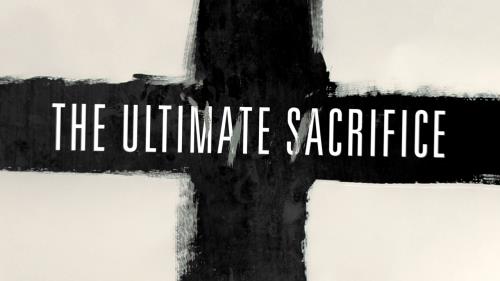-
The Danger Of Misconceptions
Contributed by Brian La Croix on Nov 28, 2017 (message contributor)
Summary: Message taken from the episode of Herod’s attempt to kill the baby Jesus.
The Danger of Misconceptions
Matthew 2:13-18
January 4, 2004
Introduction
This morning we take a look at one of the more gruesome episodes in the Bible.
In the midst of the Christmas miracle, the visit of the magi, the shepherds, the manger, and all that, we come to this portion of Matthew that tells us of the murderous paranoia of an earthly ruler.
This story on the surface is about a despot not unlike many that are still around today. But it goes much deeper than that.
It¡¦s also the story of the sovereignty of God in protecting the Messiah, not allowing human affairs to interfere with His plan to redeem you and me
But there¡¦s still more to it than even that, as if that wasn¡¦t enough, and it is.
But before we get there, I want us to read this passage, which forms the basis for our time this morning.
Please turn to Matthew 2:13-18. If you¡¦re using the Bibles in the seats, this is on page 682.
13 When they had gone, an angel of the Lord appeared to Joseph in a dream. "Get up," he said, "take the child and his mother and escape to Egypt. Stay there until I tell you, for Herod is going to search for the child to kill him."
14 So he got up, took the child and his mother during the night and left for Egypt, 15 where he stayed until the death of Herod. And so was fulfilled what the Lord had said through the prophet: "Out of Egypt I called my son."
16 When Herod realized that he had been outwitted by the Magi, he was furious, and he gave orders to kill all the boys in Bethlehem and its vicinity who were two years old and under, in accordance with the time he had learned from the Magi. 17 Then what was said through the prophet Jeremiah was fulfilled:
18 "A voice is heard in Ramah, weeping and great mourning, Rachel weeping for her children and refusing to be comforted, because they are no more."
This morning I want us to look at something else about this story, and it¡¦s this: the world operates on some misconceptions about Jesus.
In the case of Herod, it had a devastating impact on the town of Bethlehem. And these misconceptions are the basis of why many people reject Christ today.
I want us to look at a couple facts about Herod¡¦s misconceptions about Christ, and then I want to bring it into our current time and look at how people¡¦s misconceptions affect and impact their destiny as well as the impact on our culture.
My intention this morning is to help us see that we just can¡¦t look at this story and pass it off as ancient history.
The basic attitude of Herod is still alive today, and we need to deal with it, even if it¡¦s not on such a horrible scale. We need to recognize it and learn how to respond. That¡¦s what I hope to help us with.
Let¡¦s lay the groundwork for that by looking for a bit at Bad Boy Herod.
1. Herod was threatened by a misconception about Jesus.
When the magi asked where the ¡§King of the Jews¡¨ was, Herod thought they were talking about an earthly political king who would take him from his role as a puppet king for Rome.
Now being the power hungry kind of guy he was, as most earthly kings were, and are, he saw a threat.
It was a false threat. Jesus had plenty of opportunities to become king, and after the feeding of the 5,000, the crowd wanted to force Him to become King, so He got out of there before they could do it.
When questioned by Pilate, He said that He was, indeed, a king, but not of an earthly political kingdom, but a heavenly one.
But being a small child at the time of this episode in Matthew, he wasn¡¦t able to communicate that to Herod in person.
So Herod decided that a threat existed, which leads us to our next point in this story, and that is that¡K
2. His misconception had an impact.
No duh, Brian! Talk about an understatement!
Herod had a bunch of innocent children slaughtered because he operated under a misconception!
Commentaries tell us that because of the relatively small population of Bethlehem at this time, the number of boys murdered was probably about a dozen or so.
Does that make any difference in how barbaric and ugly it was? Absolutely not.
My point here is that Herod, had he been a close follower of the God of Abraham, Isaac, Jacob, and David, studying the Scriptures diligently, he may well have come to the conclusion that the Messiah was not one to be feared, but rather to be welcomed.

 Sermon Central
Sermon Central



